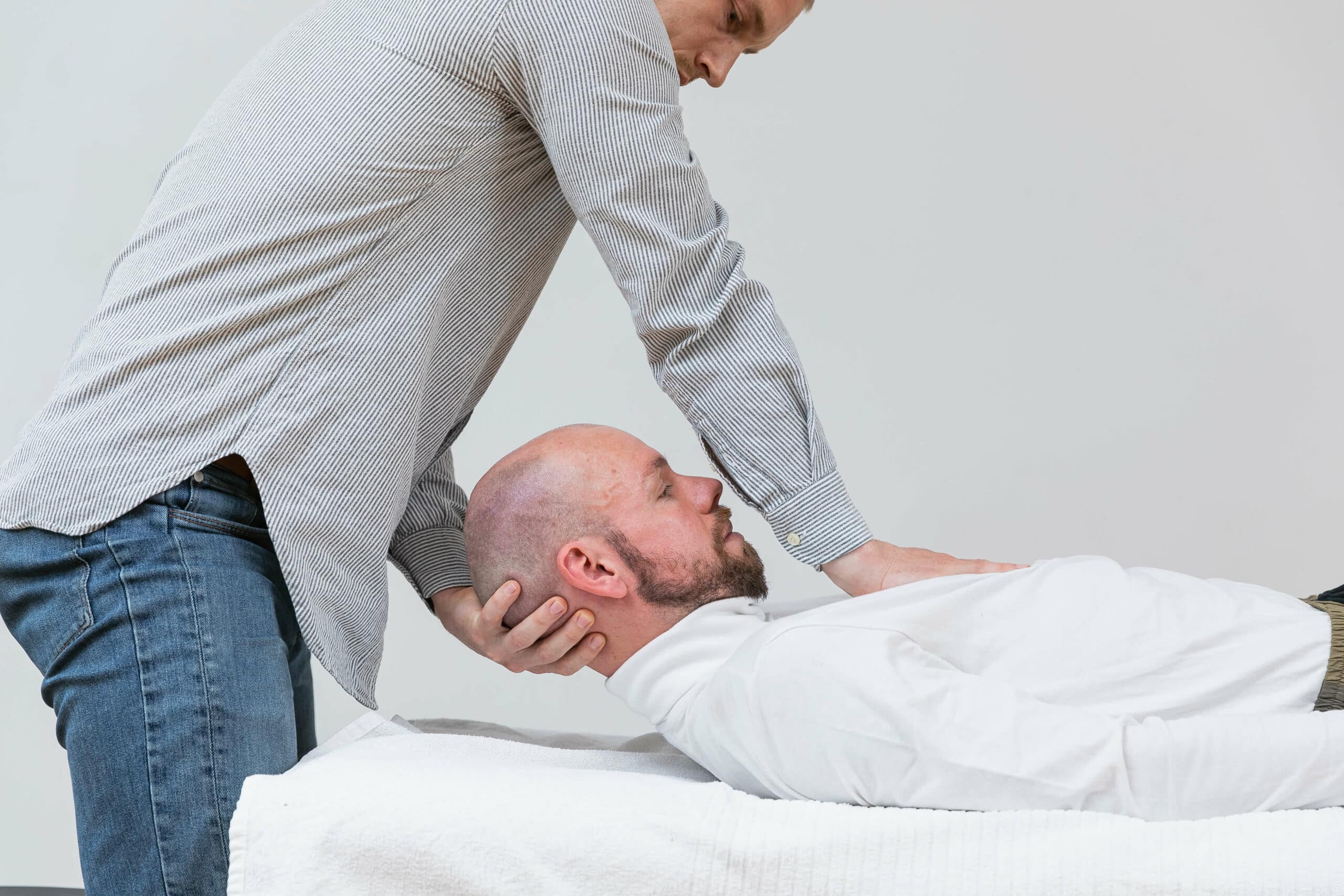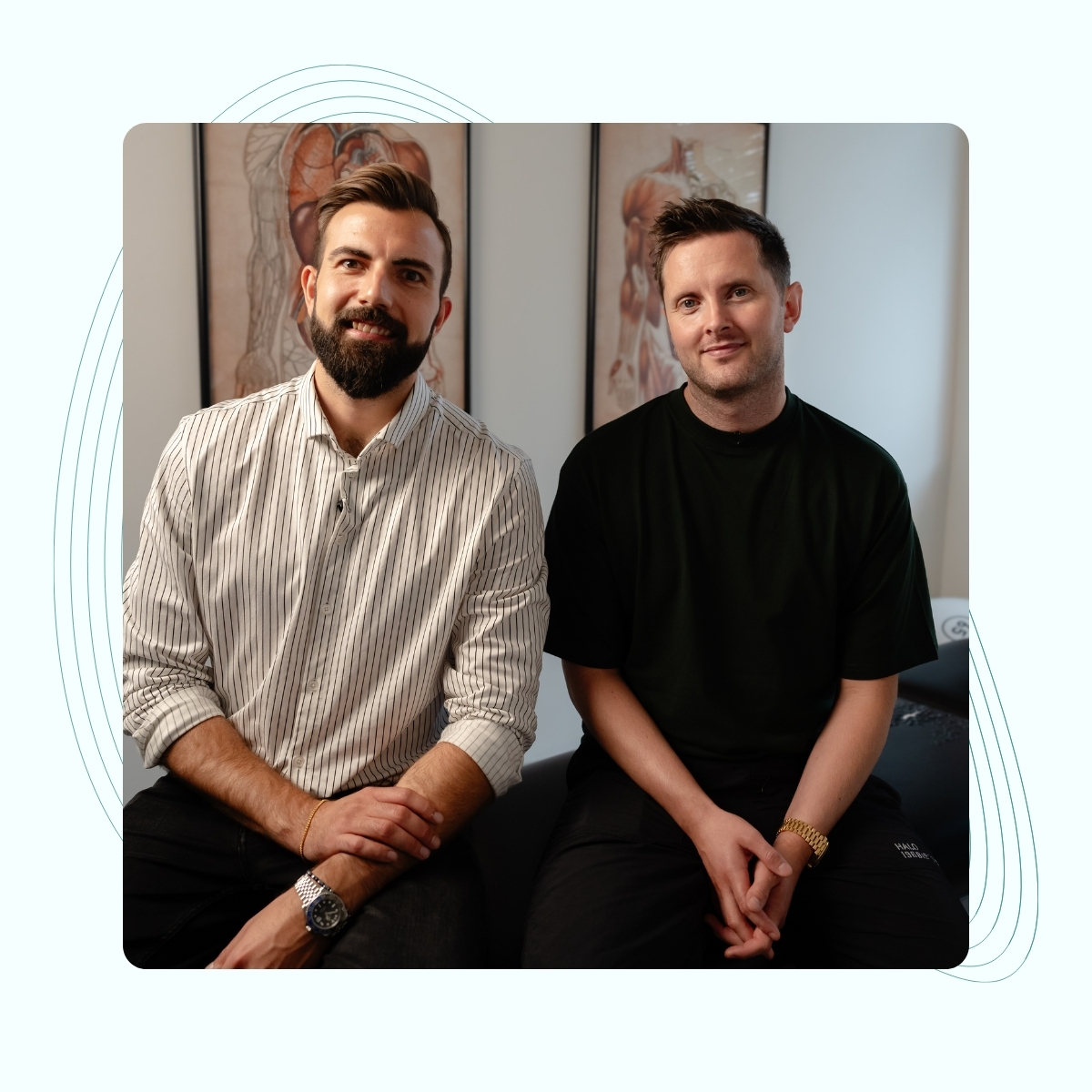We treat
Neck strain
Learn more about neck strain and its treatment
Neck pain
Most people will experience neck strain at some point in their lives. This is often quite harmless, but it can cause pain and discomfort while it is happening. However, the reasons why it occurs are worth looking into so that the discomfort can be prevented.
Jump to section [Show]
What is neck strain?
Neck strain can be caused by the small facet joints we have between our vertebrae in the neck, which can become inflamed or locked, and spasms in the muscles can be experienced. This can occur suddenly with a quick jerk in the neck or a trauma, but can also come on gradually after one morning you wake up and, for example, have difficulty turning your head to one side. Here you will experience a tightening sensation in the neck muscles and pain when trying to move your head.
The symptoms often disappear within a short time, but for some people they can last longer. Regardless of the time period, it is a good idea to have it investigated so that the cause can be found and the risk of it occurring again can be reduced.
Source: Sundhed.dk

Symptoms of neck strain
Symptoms of neck strain may include:
- Neck pain
- Reduced mobility
- Tightness of the neck and throat muscles
- Sharp pain when attempting to move the head to the side with reduced mobility
- Headaches may occur.
Why do you get neck strains?
Causes of neck strain can vary from person to person, but often it can be the neck muscles that tense up very strongly, or our facet joints in the neck vertebrae that can lock. Neck strain can often be triggered by lying with your head very crooked during the night.
Source: Sundhedsstyrelsen

Neck strain can originate from somewhere else in the body
As previously mentioned, an incorrect sleeping position can be a trigger for neck strain, or a rapid twisting. However, the cause of neck strain does not have to stem solely from this.
Often we see that the problem may have started somewhere else in the body long before you experience a neck strain or neck pain.
- For example, our neck can be affected by the digestive system or the chest cavity since the nerves that help control this come from the neck.
- In addition, prolonged stress, posture in a forward-bending thoracic spine, sedentary and uniform work positions can also contribute to neck problems.
- Problems in the jaw region can also be a contributing cause of neck stiffness.
The neck is the uppermost part of the body that most often aligns with the rest of the body as we need to look straight and are therefore prone to compensating a lot, which can lead to tension in the long run.
Neck strain after whiplash
A whiplash injury can often occur in connection with a head trauma or car accident where your neck is jerked back and forth. Here, the neck and throat muscles tense up to protect the neck and head from the jerk.
Shortly afterwards, you will often experience stiffness and discomfort in the muscles of the neck and throat.

Risk factors for neck strains
Some of the typical factors that can increase the risk of getting a neck strain may be the following:
- Prolonged stress
- Digestive system problems
- Uniform sitting position for a prolonged time
- Sleep problems
- Inactivity
Osteopathic approach to neck strains
The osteopathic approach to neck pain starts with a thorough interview and examination to uncover all the body’s systems as well as lifestyle factors.
Through conversation and examination, it will be revealed whether there could be something around, for example, the digestive system, the jaw or, for example, the chest cavity that needs to be treated and loosened, or other places in the body that may be related to the neck strain. An osteopathic consultation will therefore often involve treatment, advice and guidance as well as exercises.

Often related injuries
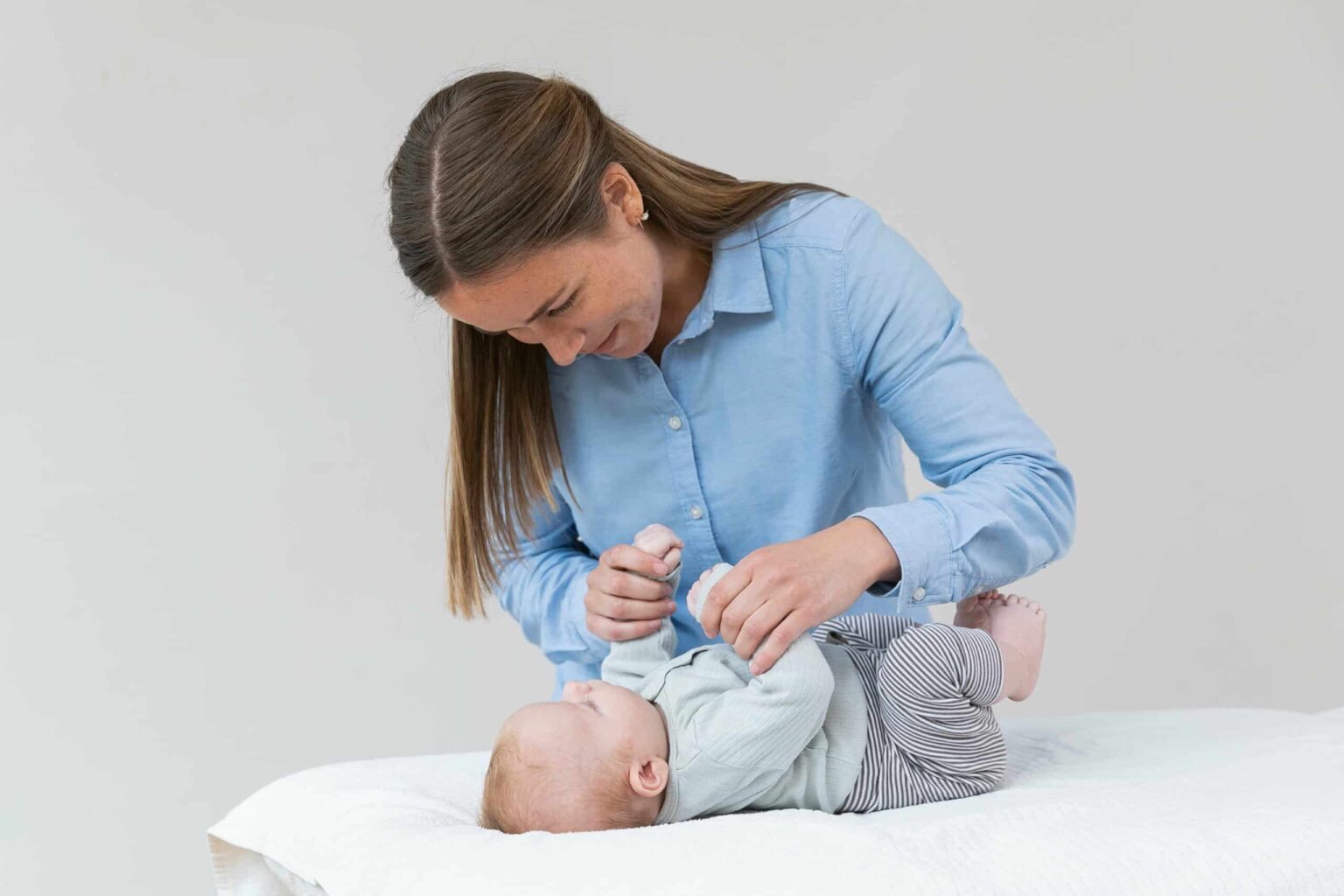
Hypermobility in babies and children

Muscle tension or imbalances in babies and children
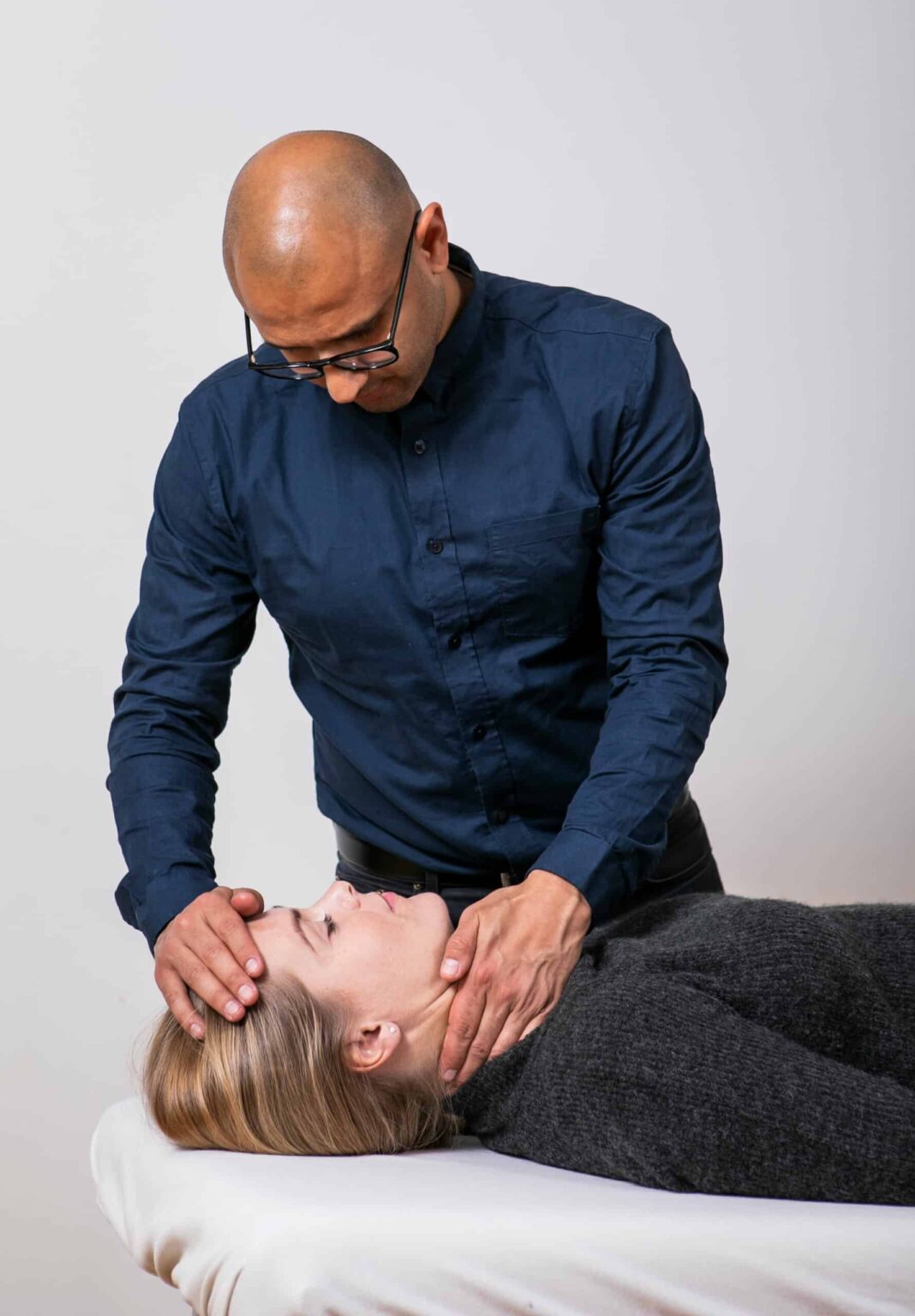
Neck strain
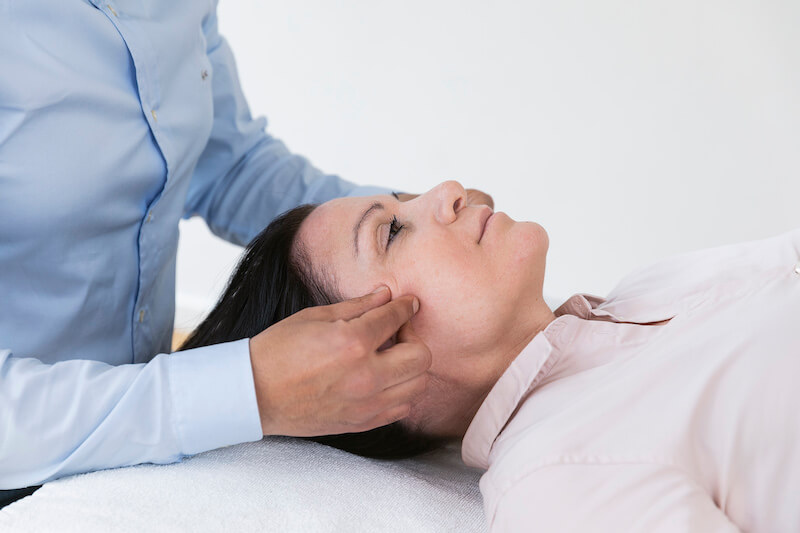
Pinched nerve in the neck
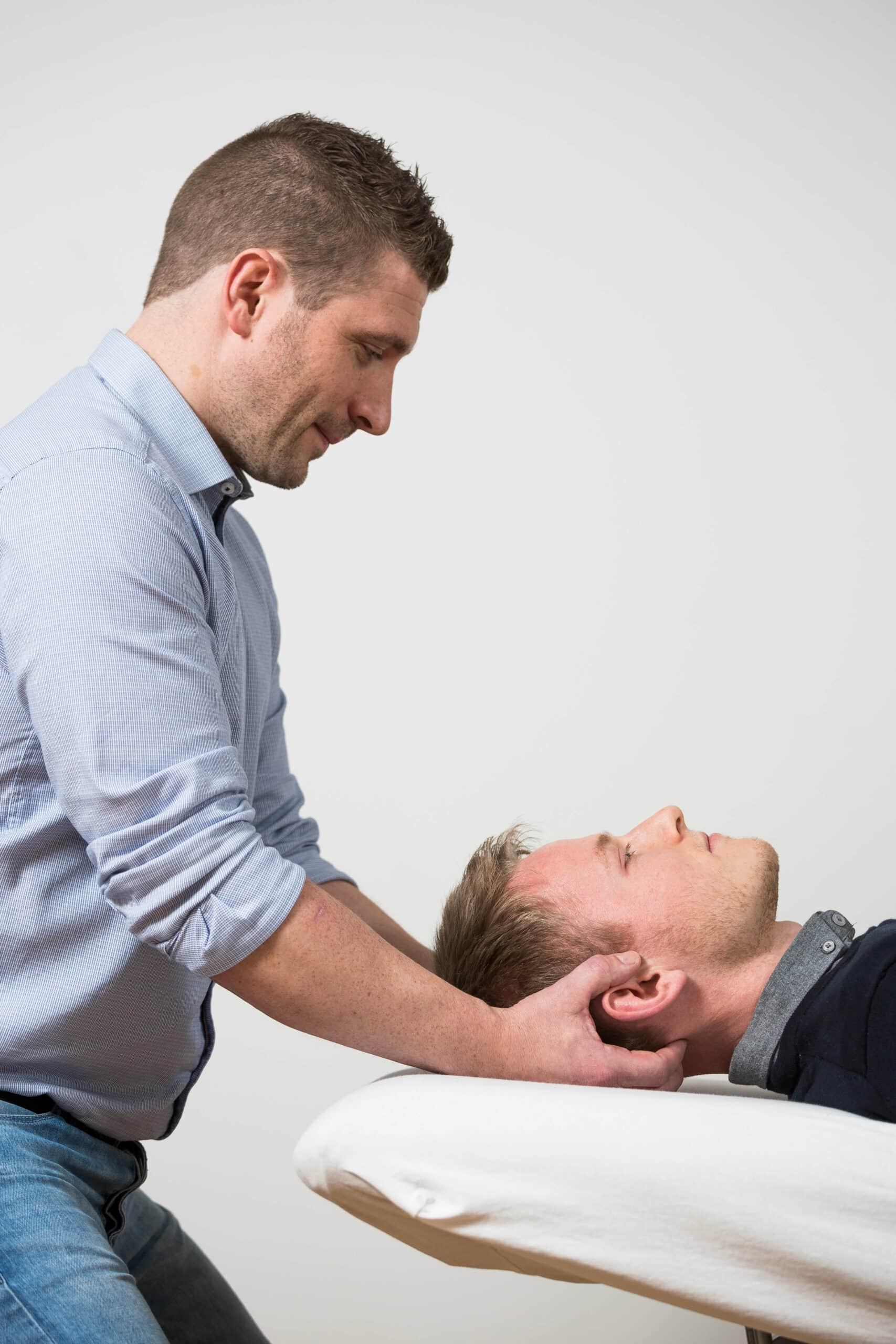
Disc herniation in the neck
